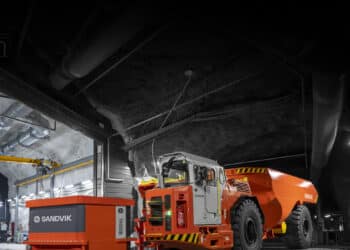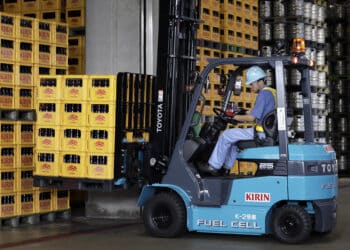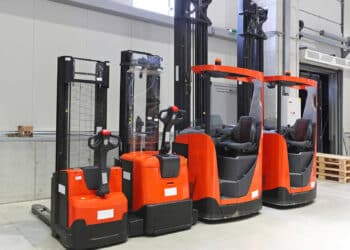Pronto has deployed its autonomous haulage system at construction materials company Heidelberg Materials’ Lake Bridgeport quarry in North Texas.
San Francisco-based Pronto aims to streamline operations at the quarry with its technology that has propelled the company into a key player in the autonomous vehicle sector, Chief Financial Officer Christian Kurasek told Equipment Finance News.
“We have the industry’s simplest, easiest to use and most cost-effective solution,” he said. “We use only cameras. We don’t use radar and LiDAR, like all of our competitors do in various permutations. Those are expensive sensors. They’re fragile, easily damaged and it complicates the software.”
Other autonomous haulage system providers include Hitachi, xtonomy, SMS Equipment and industry pioneer Komatsu, which is partnering with Pronto at the Heidelberg site.
Pronto’s autonomous haulage system addresses challenges facing the commercial trucking industry such as labor shortages and high operating costs, Kurasek said.

Higher efficiency, lower costs
Autonomous trucks can reduce fuel use by up to 32% compared with traditional trucks, according to Aurora Innovation, a self-driving vehicle technology company.
Pronto’s customers have reported fuel savings of more than 10%, total life cycle cost savings of 10% to 15% and productivity increases as high as 20%, Kurasek said. The company, which is backed by venture capital and select individual investors, anticipates that its system will save Heidelberg a considerable amount in fuel and other expenses because it’s a “very controlled operation” that maximizes efficiency.
“If you look at what a human-operated truck can do, you lose 20% of the availability of that truck from the get-go,” he said. “So, you pick up a huge amount of capital equipment efficiency … your brake life is extended, you get better lining on the tires, less wear and tear on the chassis, because you can program and take the perfect maximum speed returns and things like that.”
How it works
Pronto’s system is an add-on to an existing haulage truck typically used in off-road settings such as quarries and mines. The company did not disclose the cost of the system.
After installation and training, Pronto programs the system to drive a route using cameras and GPS for navigation. A human must drive a route once so it can be saved to the system, Kurasek said.
With Pronto’s in-house software and communications network, users can operate the vehicle from a phone, tablet or other web-based device. The software allows users to control each truck and see the status of the entire system, on or off site, he said.
At the Heidelberg site, Pronto’s technology will be installed in Komatsu HD605-8 haul trucks, which typically cost between $1.5 million and $1.8 million new, according to a sales representative from a certified Komatsu dealer.
Pronto’s deployment at the Heidelberg quarry will include integration of Komatsu’s Quarry technologies, according to a release. Smart Quarry is a fleet management solution that provides in-depth analysis and data reports to track and optimize fleet performance.
Scaling up a challenge amid soaring demand
Pronto has focused on smaller fleets since the company was founded in 2018. Now, it is working with big industry players in the quarry and mining markets, with more deployments in the pipeline. The company declined to identify the customers.
“We’ve now proven the economics work down to deployments as small as three trucks at a small quarry, and we’re in the process of scaling up to much larger operations,” Kurasek said.
While Pronto stands to benefit from increased demand for autonomous vehicles, it faces challenges in scaling up and maintaining quality as demand for the technology has exceeded its capability, he added.
Kurasek also noted that demonstrating the safety of its product will be a major advantage as the company looks to grow, given that it is a top priority among autonomous vehicle users.
“This is a conservative industry. It’s very safety focused, as it should be,” he said. “And so that’s one of the reasons why we’ve been heads down over the last couple of years, really demonstrating to some of the biggest players in the world that our tech is better.”
Autonomous vehicles could prevent more than 1.4 million accidents and 12,000 fatalities, saving approximately $94 billion, according to the U.S. Chamber of Commerce.









